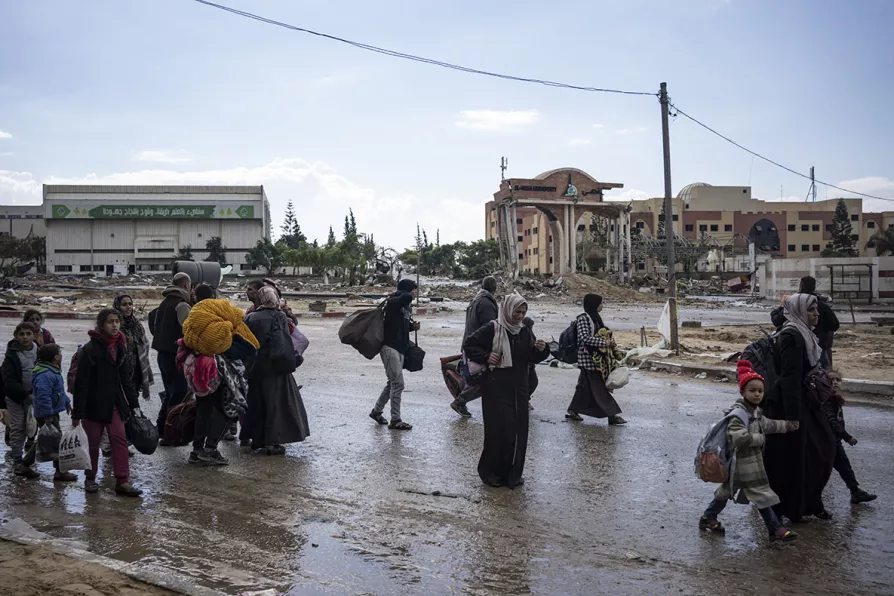RICHARD BURGON MP speaks to Ben Chacko about the Labour right’s complicity in the Mandelson scandal and the need for a total break with Starmerism if the party is to defeat Reform

 Palestinians flee from the city of Khan Younis in southern Gaza after an Israeli ground and air offensive on January 29, 2024
Palestinians flee from the city of Khan Younis in southern Gaza after an Israeli ground and air offensive on January 29, 2024
BOTH the Tory Party and Labour have responded to the International Court of Justice (ICJ) case on possible genocide by the Israel Defence Forces (IDF) in Gaza by trying to ban or shout down anyone using the “G-word” — genocide.
This definitely isn’t because they are precious about calling things “genocide” or any worry that the term could be devalued; the top members of both parties have been very free to call “genocide” in the much less sure case of the Uighurs in China.
South Africa made a case at the ICJ that the IDF’s war is not just a response to the Hamas-led massacre of Israelis on October 7 2023. Instead, the IDF’s actions are “genocidal in character because they are intended to bring about the destruction of a substantial part of the Palestinian national, racial and ethnical group […] in the Gaza Strip.”

GAVIN O’TOOLE welcomes, and recommends a a candid, evidence-based record of Britain’s role in the slaughter visited by Israel upon the Palestinians

Our Foreign Secretary now condemns Israel in the Commons, yet Britain still supplies weapons and intelligence for its bombing campaigns — as the horror reaches perhaps the final stage, action must finally replace words, writes DIANE ABBOTT MP

Israel’s messianic settler regime has moved beyond military containment to mass ethnic cleansing, making any two-state solution based on differential rights impossible — we must support the Palestinian demand for decolonisation, writes HUGH LANNING

ANSELM ELDERGILL draws attention to a legal case on Tuesday in which a human rights group is challenging the government’s decision to allow the sale of weapons used against Palestinians











